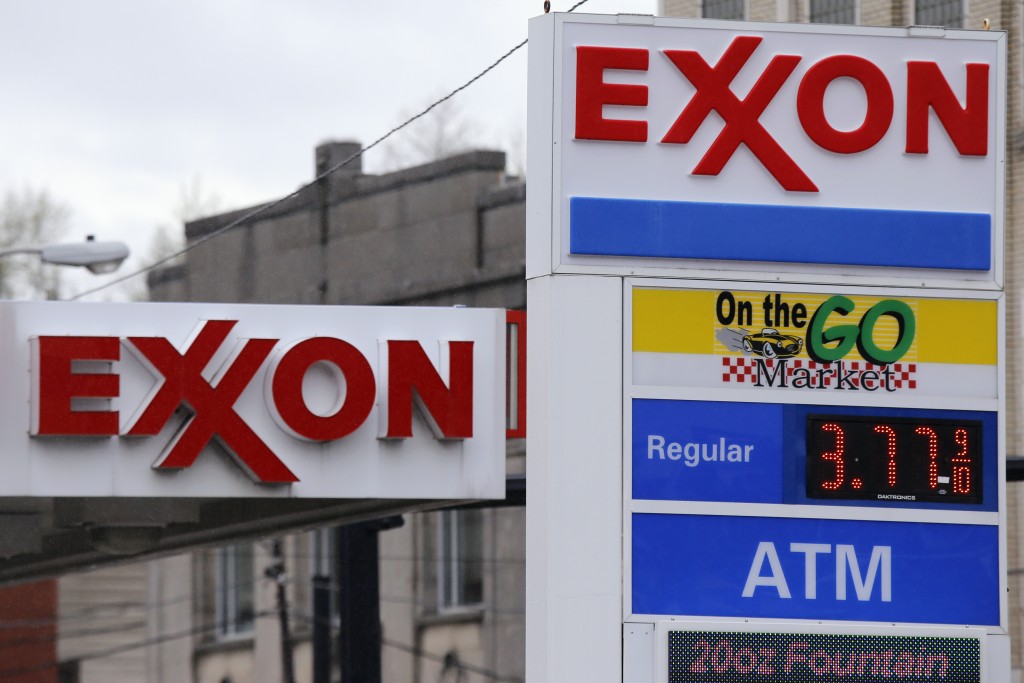
More than a hundred scientists have sent a letter to the American Geophysical Union (AGU), the largest association of earth and space scientists in the world, asking it to cut financial ties with Exxon in light of allegations that the fossil fuel company willfully misled the public about climate change for decades.
The letter was initially crafted by three early career scientists from MIT and Harvard, but has since garnered signatures from over 100 prominent scientists, including names like James Hansen, Naomi Oreskes, and Michael Mann.
“Our intention is to help rebut the climate misinformation that has been put out, especially by ExxonMobil, by asking the AGU to reject sponsorship from Exxon for its conferences,” Ben Scandella, a PhD candidate at MIT and one of the letter’s original authors, told ThinkProgress. “We’re concerned that by accepting sponsorship from Exxon, AGU is engaging in a serious conflict of interest because it is lending its institutional license to a company that is working publicly to undermine the consensus about anthropogenic climate change that a number of AGU members have worked hard to establish.”
The AGU, which was created to promote the geophysical sciences, claims among its members a large contingency of climate scientists. Of the roughly 104 scientists that have signed the letter, 70 are AGU members.
Posted Monday morning on the science website The Natural History Museum, the letter specifically asks that the AGU reconsider Exxon’s sponsorship of the society’s fall meetings. Exxon has been a primary sponsor of the meeting for years, but has come under increased scrutiny in recent months due to a series of investigations into Exxon’s climate policies published by both InsideClimate News and the Los Angeles Times earlier this year.
We’re concerned that by accepting sponsorship from Exxon, AGU is engaging in a serious conflict of interest…
The investigations found that Exxon’s own scientists knew about the dangers associated with climate change as early as 1977, and yet continued to fund misinformation campaigns that questioned the scientific consensus around climate change. In light of the investigations, lawmakers have called for the Department of Justice to launch a formal investigation into Exxon, and several state attorneys general have already initiated criminal investigations. Last week, three lawmakers also asked the Department of Justice to begin investigating Shell, citing a growing body of evidence that suggests there could be “a conspiracy between Shell, ExxonMobil and potentially other companies in the fossil fuel industry.”
The AGU, in its own Organizational Support Policy, states that it will “not accept funding from organizational partners that promote and/or disseminate misinformation of science, or that fund organizations that publicly promote misinformation of science.” That policy was established in the summer of 2015, just months before the allegations against Exxon became public.
“Exxon’s track record, with respect to climate science, is long and troubling and entirely inconsistent with [the AGU’s] policy and the society’s climate statement, which is clear and unequivocal about supporting deep reductions in emissions,” Peter Frumhoff, director of science and policy at the Union of Concerned Scientists, who also signed the letter, told ThinkProgress. “We set up a policy. We need to implement in a clear way, and we need to have a conversation about Exxon and other companies that misinform in order to avoid regulation with regard to climate.”
Margaret Leinen, AGU president, responded to the questions about the society’s relationship with Exxon in a blog post published on the AGU website, saying that “ExxonMobil’s current public statements and activities were not inconsistent with AGU’s positions and the scientific consensus.” In light of the recent letter, however, Leinen updated the post to add that the AGU Board of Directors will look closely into the matter during an upcoming April meeting.
To be truly reflective of Exxon’s policies, however, many argue that the AGU would need to go beyond public statements and consider the private actions the company has taken to fuel public misinformation.
“If you’re looking at public statements, it’s hard to find because they are funneling their misinformation campaigns through dark money organizations,” Scandella said.
In a study published last November, Yale University sociologist Justin Farrell found a strong connection between the private funding actions of companies like Exxon and the overall polarization of climate change as a topic in the United States. According to Farrell’s research, groups that accepted money from Exxon were more likely to produce texts stressing things like the idea that climate change is a long-term cycle or that carbon dioxide is in fact good for the planet, key tenants of a climate misinformation campaign.
According to both Scandella and Frumhoff, it’s that misinformation — not the fact that Exxon is a fossil fuel company — that has led scientists to voice concerns with the company’s role in funding the AGU’s meetings. Fossil fuels have had a long relationship with earth and geosciences, Frumhoff explained, pointing to petroleum geology as an example. The concern, he added, is that by allowing Exxon to support the AGU’s meetings, the AGU is lending an air of credibility to the company. It’s a public relations tactic known as “greenwashing,” where organizations publicly fund campaigns or events that run counter to their private actions or interests.
“The letter isn’t about saying that Exxon scientists or Exxon-funded scientists have no place in society. The letter is about saying we shouldn’t be advertising Exxon as a good corporate citizen by accepting their funding when their behavior is so unequivocally inconsistent with scientific integrity and our commitment to address climate change,” Frumhoff said.